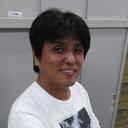[Involvement of arachidonic acid cascade in brain edema and cerebral energy metabolism after reperfusion].
Ключевые слова
абстрактный
The involvements of arachidonic acid metabolites in the development of ischemic brain edema and cerebral energy metabolism were investigated on the experimental ischemia and reperfusion model. The level of arachidonic acid in brain tissue increases especially on the ischemic insult, which is rapidly converted to prostaglandins and leukotrienes after the reperfusion. The drugs which modify the arachidonic acid metabolism were administrated to clarify the effect on ischemic brain edema and cerebral energy metabolism. Male stroke resistant spontaneously hypertensive rats (SHRSR) were subjected to incomplete ischemia for two hours by occlusion of both common carotid arteries with vascular clips, and reperfused for two hours. The drugs used are dexamethasone, indomethacin, trapidil and OKY-046. Indomethacin inhibits cyclooxygenase. Dexamethasone inhibits phospholipases by the production of lipocortin. OKY-046 inhibits thromboxane A2 synthetase. Trapidil inhibits thromboxane A2 synthetase and increases the level of 6-keto-PGF1 alpha. These drugs were administered 18 hours before, just after clipping on (1/2) and off (1/2). Brain water content, cerebral ATP and lactic acid levels were examined. In the saline treated group, the cerebral water content was increased after the reperfusion and reached its maximal level after two hours of the reperfusion. The development of brain edema was prevented by the administration of dexamethasone or trapidil, but not by indomethacin and OKY-046. Administration of trapidil or dexamethasone was found to prevent the decrease in ATP and the increase of lactic acid. In the indomethacin administrated group, only the increase of lactic acid was prevented. 6-keto-PGF1 alpha was high in the trapidil administrated group and low in the indomethacin administrated group.(ABSTRACT TRUNCATED AT 250 WORDS)


